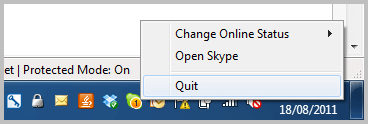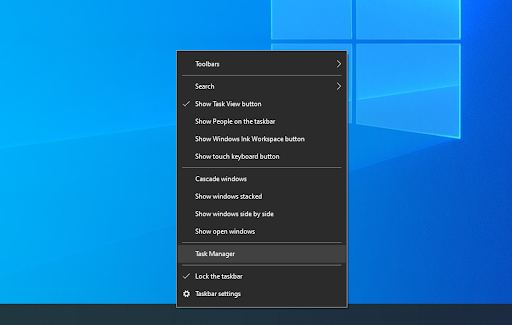

In Windows version before 7, application windows used to take up a lot of space on the taskbar. This puts these applications out of the way of applications on the taskbar that you do interact with actively. Chat programs like Live Messenger have always had this feature of minimizing to the tray. Some, like media players, "minimize" to the system tray. If the window represents the application itself closing it will quit the application.Īpplications that don't really require a window have always been looking for ways to properly dealing with this.

If the window represents a document, closing it will close the document and if it's the last window of the application it will also quit the application. Minimizing a window temporarily removes the window from the view, but it's still "there".

In Windows it has always been the rule that an icon in the task bar is related to a window. This way you can select the application and open an new window if you need to create a new document or interact with the application in any way. Skype doesn't need to have a window for you to be available for a session.Īpplications that are still running but don't have a window, are available in the dock. There are also applications like iTunes and Spotify, that don't require a window to continue to play music. In many applications the window represents a document in the application, while the application itself doesn't have a window. In OSX it is very common for closing a window to not remove the application from the dock. This is, of course, highly cynical, and breaking native OS convention in this fashion is extremely bad practice. Most Windows users don't have visibility of any applications not on the taskbar, so by hijacking the close button in this fashion, Skype can ensure that there's always peer-to-peer nodes available to handle new calls. This means that, as a Skype user, your machine is being used to facilitate other people's connections even when you aren't making a call yourself, much as a BitTorrent user is serving data to other users when he or she isn't making a download themselves.Īs such, it's not in Skype's interest to allow users to easily close the application, as that means that more traffic has to be handle by Skype's own servers, which naturally comes at a cost. Skype, being a peer-to-peer telecoms application, works much like BitTorrent and other P2P distribution methods by relying on users' own machines and internet connections to route the traffic of other people's calls.


 0 kommentar(er)
0 kommentar(er)
